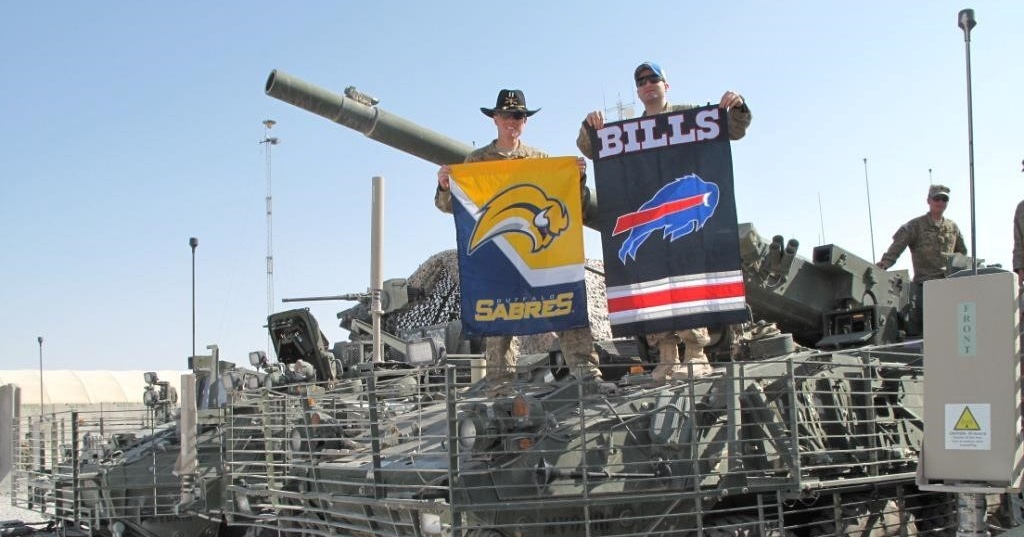Making the Transition from Military to MBA

At right: Chris Miano, Afghanistan 2013
By Chris Miano, MBA ’17
Co-Founder, Memory Fox
Former Operations Officer, U.S. Military
January 2016
The transition from military service member to student can be an imposing endeavor. You may be wondering how well you will fit in and whether or not you will be able to keep pace with students who are fresh out of undergraduate school or seasoned working professionals who have returned to university to further enhance their skills.
For me personally, struggling mightily with the GMAT was the first and most prominent obstacle that made me a bit nervous about going back to school. I realized very quickly while attempting to prepare for this test that my brain needed to be “untangled,” (as I like to say) before I would be fully up to speed for school. Conversely, I was nervous about the prospect of how other students and faculty would view me as a veteran and what sort of baggage that would carry with it. Luckily, the University at Buffalo full-time MBA program, the university as a whole and my fellow students were incredibly helpful in easing this transition.
First, UB's Veteran Services Office is fantastic. They have been with me every step of the way in making sure my GI Bill benefits (also known as the Servicemen’s Readjustment Act) go through and for any other needs I may have. The benefits as a part of this act (established after World War II) include college tuition assistance up to 100%, which is essential for helping veterans “catch up” a little when starting a new career path.
Maureen, Ed and Dan (you’ll get to know them on a first name basis) have been fantastic and I couldn’t have asked for anyone better. It is natural to be a little overwhelmed negotiating the Veterans Affairs entitlement programs, but with the help of the team at UB this will be much easier. All you have to do is fill out a single sheet of paper each semester and they take care of the rest. Make sure you take advantage of the great folks here at UB to help get it all figured out. If you ever have any questions, start with Ed Draper — he’ll steer you in the right direction.
The UB MBA program itself is very military friendly. Since it is a management-centered curriculum, you will spend a lot of time learning the science of leadership and organizational behavior. You will feel right at home with many of these concepts that exist behind a lot of the practical knowledge you intuitively learned during your military experience. We even watched some videos of military leaders like George Patton applying techniques like leading change in organizations and building a strong organizational culture. In addition to the curriculum, the program staff are fantastic. From professors to administration to the Assistant Dean Erin O’Brien, they have all been uniformly helpful in both their positivity and understanding of the military transition experience. Most importantly, they’re just fun to be around. As a service member, you no doubt know how important attitude is. The staff in the UB MBA program all have phenomenal attitudes, making the transition much easier.
Here are some tips that will help you get through the first semester:
- Be humble
It’s going to be hard, and that’s okay! This won’t be the most challenging thing you’ve ever done most likely, but it is difficult in a whole new way. You will spend a lot of time rebuilding your study habits and relearning how you learn. You have to be very self-aware to effectively transition into this program. If you’re like me, you need a lot of practical exercises. I can’t just read the material and review the slide shows, I need to actually practice and ask a lot of questions of the professors. I am never afraid to look stupid in class asking questions, and students tell me all the time that they appreciate me asking the questions they were afraid to ask. The classes are difficult but the reward is a whole new set of skills that will layer perfectly on top of your military experience. - Be patient
You’ll be surprised how many students in the program are not directly out of undergrad. Many of your classmates will naturally excel at a faster pace than your own. Don’t get frustrated. You belong in the program, just for different reasons. It will click for you and all of a sudden things will make sense, but it will take some hard work. I promise you though, it will come. Keep plugging away and doing the work and always carry yourself like a professional. - Be understanding
Again, you are going to have to deal with a much different atmosphere than you did in the military. You are going to hear comments in class that are naive and/or misguided, but that’s why they are here. They’re learning, just like you are. In addition, you are going to be doing a ton of group work. I had a fantastic group that worked well as a team right off the bat, but there may be some growing pains with yours. This will be a serious challenge for someone who is used to leading and making decisions, but it is even harder if you aren’t willing to be understanding. Meet people on their level and earn their respect, don’t expect it to just come because you were in the military. Take the time to get to know your group and what motivates them all and adjust accordingly. Again, maintain professionalism at all time, no matter how frustrating the work gets (and it will be). - Be prepared
Make sure you do the summer prep work. Make sure you mentally prepare yourself for this endeavor, and reflect on the person that you want to be. If you are not dedicated 100%, you will have a very difficult time. Trust me, I tested it at the beginning. I thought that our first organizational behavior test would be easy and I barely studied, thinking it would be like undergrad and I could get by on the extensive real-world organizational behavior experience I had. Big mistake. I recovered by the end of the class and ended up with a good grade, but it was a real wake-up call. - Have fun
Most of the students are full of great energy and an eagerness to expand their horizons. Get to know them and be social (if that’s your thing). You will be with students from all over the world, and I’m thrilled with the network I now have that will stay with me for the rest of my life. The professors are fantastic and love to chat after class, even if it isn’t necessarily about the curriculum. They’ll do their best to make the learning experience as fun and interesting as possible. If you just bury yourself in books and never enjoy the social aspect of being back in school, you’ll burn yourself out and miss out on some great experiences.
If you are undecided about the program, I hope this helps build a case to choose UB for your MBA. No matter how frustrated I was with studying and trying to understand the material, I never once regretted choosing UB and this program.
To learn more, visit the full-time UB MBA program and UB Veterans Services Office online. You can learn more about the GI Bill and your benefits by visiting benefits.va.gov/gibill.

Chris Miano, MBA ’17, spent eight years in the military before attending the UB MBA program. He served in Iraq and in Afghanistan, as well as in the U.S. Military Northern Warfare Training Center. His duty stations included Fort Sill, Oklahoma; Baumholder, Germany; and Fairbanks, Alaska. He is a lifetime Buffalonian whose true passion is service to the City of Buffalo and contributing to the resurgence of the city he loves. He enrolled in the UB MBA program to help expand his professional network in Western New York and transition the many skills he learned in the military into civilian expertise.
Any reference to branches of the United States armed forces—either in copy or through the use of still or motion visuals—does not constitute an endorsement of the university by the United States Department of Defense or any unit thereof.
